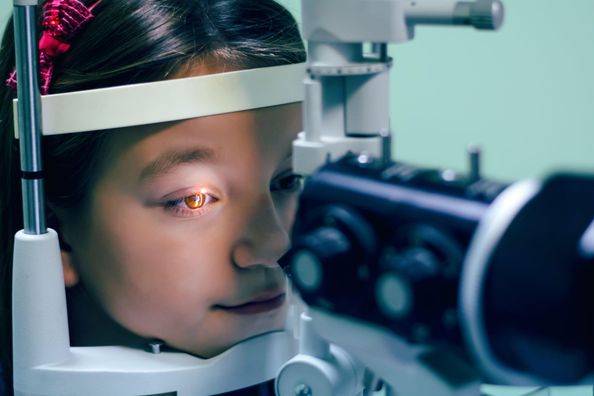Often times when our children complain of minor muscle pain in their thigh or calf, we respond with, “It must be growing pains”. Occasional discomfort as your child is growing and developing, especially from the ages of 2 to 12, is very common. Growing pains are nothing to worry about and will come and go throughout childhood, but have you ever wondered what it means or why it happens? Pediatrician, Dr. Malini Kumar, explains what is actually happening to a child’s body and how you can help.
What are growing pains?
The term “growing pains” refers to feelings of pain or throbbing in your child’s shins, thighs, calves or the area behind their knees.
The discomfort concentrates in the muscles, affects one or both legs and often occurs late in the day or through the night, usually disappearing by the morning. Depending on the day, the pain will come and go, may feel mild to severe and can last anywhere from a few minutes to a few hours. Each child will experience growing pains differently and, while common, not every child will experience them.
It is important to note that growing pains should not interfere with your child’s ability to play sports or be active. If pain is interfering with your child’s activity, it may be the result of a more serious condition or injury.
Growing Pains: A result of physical growth?
Despite the name, there is no evidence that bone growth is painful. In fact, growing pains often do not occur during times of rapid growth. It is more likely that the aches your child feels are the result of days spent jumping, running and climbing. While typically attributed to active days, growing pains may also be the result of a lowered pain threshold, weak bones or, in some cases, psychological issues.
What is a growth spurt?
From infancy to adolescence, children typically experience periods of rapid growth in height and weight, followed by a period of slower growth. Your child’s growth pattern will be monitored by your pediatrician, as it provides valuable insights to their overall health. All children grow at different rates, and several factors including genetics, hormones and nutrition play a role in your child’s growth.
What is a growth delay?
A growth delay is a condition in which a child is considered small for their age, despite a normal growth rate. Bones mature more slowly in children who experience growth delays.
Can my pediatrician diagnose growing pains?
If you are unsure whether the pain your child is experiencing is growing pains, your pediatrician can help rule out other possible culprits in order to make a diagnosis. They may conduct a physical examination of your child and ask a series of questions about their symptoms and medical history.
One way that your physician may rule out serious injury is by evaluating your child’s reaction to touch while in pain. Children experiencing growing pains will feel better when their limbs are held and massaged, while touch and movement for those with more serious injuries will make the pain worse.
Signs of more serious injury may include:
- Long-lasting pain, pain in the morning or swelling or redness in one particular area or joint
- Pain associated with injury
- Fever, loss of appetite, weakness or fatigue and/or unusual behavior
- Limping
- Unusual rashes
If the cause of your child’s limb pain is indeed growing pains, your physician should not find any abnormalities during the physical exam and X‑rays and/or blood work will not be needed.
How can I help my child when they are in pain?
While there is little that can be done to avoid growing pains, there are ways to help relieve your child’s pain.
Some helpful tips include:
- Massaging the painful area
- Stretching the muscles where the pain is felt
- Placing a warm cloth or heating pad on the area in pain
Your pediatrician may recommend giving your child acetaminophen, such as Tylenol, or a nonsteroidal anti-inflammatory (NSAID), such as Advil, after your child has had an active day or when they are experiencing aches to help ease the pain.
Aches and pains are a part of growing up and are no cause for worry. To learn more about growing pains, or to schedule an appointment with one of our pediatricians, please visit with our Pediatricians.
Health Topics:







